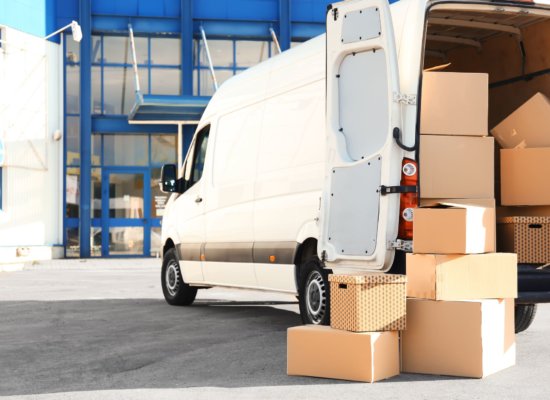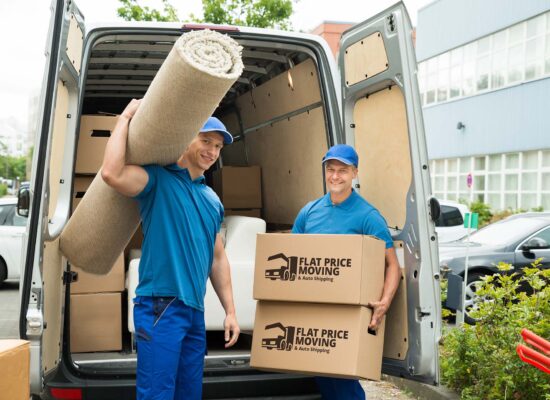How to Organize Important Documents at Home
When we imagined what it was like to be a grown-up, learning how to organize important documents at home certainly wasn’t one of the things we were looking forward to. If you type “being a grown-up is” into Google, autofill friendly suggests “so hard,” “overrated,” and perhaps most fittingly “isn’t half as fun.” But, don’t worry, dear reader. Although “adulting” has its many responsibilities, it is still unquestionably thrilling to find yourself there, even if it implies figuring out how to keep essential documents organized once in a while.

Also, it can be scary when you can’t find what you are looking for, right? Failing to find that one document when you thought you’re ready for the big move can be so frustrating. That’s why following these guidelines will prove more than helpful, whether you need some help tidying up your home or you are planning to relocate long-distance.
Tools and Supplies Needed
An endeavor like this one doesn’t require much equipment and materials, but it sure requires your full attention. Still, when talking about tools and supplies, obtaining these will speed up the process and allow you to have a stress-free moving:
- File folders,
- A filing cabinet or file box,
- Hanging file box,
- Desktop organizer,
- Recycling bin,
- Label marker or pen,
- Shredder.

Gathering Your Documents
Sorting through your paperwork is crucial when setting up a filing system you will use. That’s why gathering all your papers and personal documents in one place is the first and most vital step. Do a thorough sweep of your house, check all places, look at every nook and cranny. We are sure you don’t crave to be that man behind the counter who somehow lost or forgot his most important document. No matter if you’re moving to another state alone or maybe relocating from an apartment to a house, you can’t do without preparation first. Getting organized to move means many details are figured out before hiring long-distance movers and start scheduling long distance moving services and also professional packing.

Divide and Conquer Is the Right Method
When confronted with significant life events and questions such as how to move to another country, the last thing you want is to waste your time thinking about the missing document. But, let’s face it, documentation is one of the most commonly forgotten things to pack, and you certainly don’t want to be the one asking for your college degree, passport, or a recipe doctor gave you not so long ago. So, when talking about how to organize important papers, dividing them will keep them easily accessible, and you’ll have peace of mind. To avoid potential confusion, don’t forget to label them carefully.
Personal Identity Records
Personal documentation is the most significant one since it proves that you exist. Let’s have a look at what does it include:
- Birth certificates, social security cards, and passports,
- Marriage certificate,
- Required adoption documentation.
If you’re wondering how long you should keep these records, well, the answer is quite simple – forever. Some of these are essential during your lifetime, like your birth certificate, marriage certificate, and social security card. Whatever you do, whether you’re relocating out for the first time just a few blocks away or moving across the country for new love, you’ll want these packed safe and sound. Even if you are only dreaming about moving to another state, hold on to your documentation.
Tax Records
When it comes to being a responsible citizen, keep these as the apple of your eye:
- Any tax-related statements and returns, and
- Yearly income records
for seven years. Yup, you heard correctly. Anything tax-related is best to keep around. They may be required for an audit or the finance department if deciding to buy a new house. You never know.
Property Records
Organizing important documents like these is crucial because it keeps your legal rights recorded for future reference and makes the sale or transfer of the property easier:
- Personal property insurance documentation,
- Car registration certificate,
- Mortgage documentation, as well as deeds and bills of sale.
It would help if you kept these organized for as long as you own your property, maybe even longer. And when talking about the mortgage payment statements, proof of insurance, and contract details, you’ll want to have them with you for many years, just in case.
Medical Records
Good medical records and health information are vital and should be categorized as such:
- Medical bills,
- Health insurance policies,
- A living will and powers of attorney,
- Burial instructions.
Keeping your paid and undisputed bills for at least one year is something the Federal Trade Commission suggests since they prove that you’ve paid for their service.
Financial Records
If you are wondering how to organize documentation to deal with your bank or creditors, try to single these out:
- All your saved paychecks,
- All the processed checks,
- Statements referring to your investment goals,
- Documentation on your retirement plan,
- Disability records,
- Unemployment records.
We suppose there’s nothing you would like more than to get rid of these, but having all your monthly transactions stored in one place is pretty neat. Even though you might be tempted to trash them, file your bank statements and pay stubs just like you did previous documentation. You might need them.

Digitize Your Documentation
Maybe you’re not eager to make an entirely paperless system, but converting some of your family documentation into electronic files might be a good idea when figuring out where to store important documents. Bank statements, tax receipts, invoices, you name it. They won’t waste your space, and, as a bonus, your digitized documentation won’t ever fade. Once you get in the groove, it will be hard stopping you from shredding.

Kids’ Paperwork
Whatever your reasons to move, when relocating long-distance with kids, their school records are among the essential ones to prepare. It’s a good idea to have copies with you, but keep in mind that only official, sealed copies will be accepted as their permanent records. One of the best moving interstate tips when relocating with kids is asking for a letter of introduction from your child’s current teacher. Visiting your pediatrician might also be wise because of a physical. Be sure you have a complete record of all vaccinations and “baby shots.” Get copies of regular prescriptions, if needed, and have a full set of medical records. Having everything sorted out is one of the best moving tips if you are looking for the easiest way to pack for a move.
The same goes if you’re relocating with your pets. Bringing their medical records, too, is one of the crucial steps for a successful move.

How to Tackle Paper Clutter
It’s time to say goodbye to some of your stuff. This will make the relocation process less challenging because knowing what not to pack when moving is equally crucial as the things you find necessary. Getting rid of the recycling pile first is the easiest step when clearing the space. The next would be shredding all the unnecessary sensitive statements in order to protect your data. Finally, the remaining pile is the only one left to be filed.
Recycling Unnecessary Paperwork
How to store important documents is much simpler when there’s a bunch waiting to be forgotten. Things that don’t fall into any of the vital categories mentioned above and contain no personal information should be recycled. Newspapers, magazines, junk mail, used envelopes, and old homework are good examples.

How to Organize Documents at Home? Create Appropriate Storage Space
Finding out how to store important documents at home might seem like an exhausting task, but once you’re done sorting all your documentation, it’s pretty manageable. Placing them close at hand but safe from any potential harm should be your guide while doing it. You can use your label markers here or color-coded binders. Use whatever you like to create a functional filing system of your own, because it will allow you to quickly find the most crucial piece of paper, just like the one you barely even use. Depending on your circumstances, bear in mind that some of your files may require professional storage services. In that case, you should make copies of the most important paperwork and create a moving binder for each category. Whether you are moving in with your significant other or organizing your office move, when all of your documentation is thoughtfully stacked, even a last-minute moving won’t be much of a trouble.
Safe Deposit Box for Birth Certificate, Retirement Account, and Other Personal Documentation
Getting a safe deposit box for documentation of real significance is like buying yourself peace of mind since banks are definitely much harder to break into than people’s homes. However, consider not to store the items requiring frequent access to. You might need some of them urgently and won’t be able to get them immediately.
Household Safe
Generally, everything of value to you goes here, in a fireproof place with a secure locking mechanism. Your private information, important copies, “power of attorney” documents, your last will and testament, and emergency cash.
Split Documentation Into Separate File Boxes
There are so many options when it comes to choosing a file box. From flexible and durable plastic boxes to stylish seagrass rolling ones and many more. But, each comes with the same purpose – to easily systematize similar files together.
Desktop Organizer
This one certainly saves your time, especially when immersed in paper data. If you’d like your files to be more comfortable to find, this good guy knows how to help.
Being on a perpetual search for some simple ways that will keep your life organized might imply learning how to make your own holders. Check the video below for detailed instructions.
Regular Maintenance of Records
Once your documentation is systemized, try to keep it that way. Do not let it accumulate again: the immediate systematization of incoming paperwork will allow you to preserve regular monthly maintenance and will keep your storage well-organized throughout the whole year.

Useful Tips
To make it as smooth as possible, we prepared a few more helpful tips on how to systematize your documentation:
- Create your own labeling system, with categories and descriptions listed,
- If you’re digitizing your documentation, don’t make large filing folders,
- Save the accessible spots for the things you require most, and the rest you can place wherever you find appropriate,
- Organize incoming mail in an easily spotted place in the house, so you and your family could further arrange them.

Free To Go
If you plan to move across the country soon and need a little guidance, here you’ll find many moving tips on how to keep important documents organized and safe. And to go back to the beginning of the story just for a moment: when there is a clear path waiting, you can let yourself wander – that’s the greatest part about being a grown-up. Don’t make yourself believe that you are there only when you do something you don’t like doing. It’s not either/or situation. Hire cross country movers or even a auto transport company to do your grunt work while you are taking care of important stuff, and you’ll see that your move will go smoothly.





